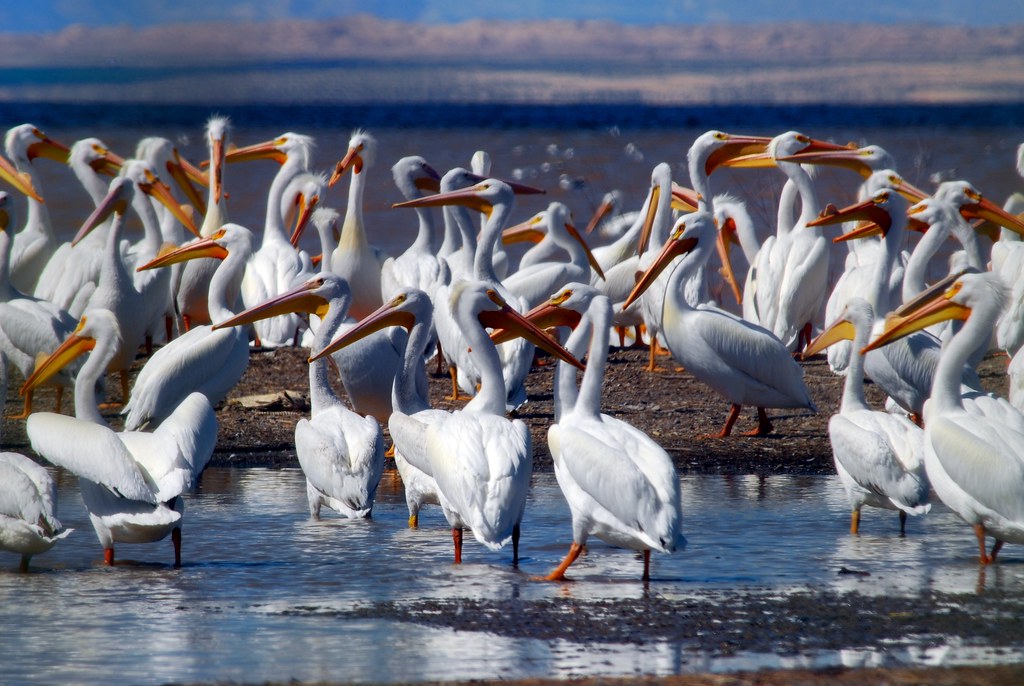Just 50 years ago, the North American continent was filled with a variety of songbird species, once among the most pervasive inhabitants in the region. However, within this short span of time, the population of these birds plummeted. Now, the species are dangerously close to extinction alongside 44% of all migratory animals worldwide, according to a new United Nations report released on Monday.
Collectively making up roughly half of the world’s species, migratory animals frequently leave their homes in search of cooler weather conditions suitable for growth, survival, and reproduction. These include species of songbirds, penguins, whales, elephants, butterflies, and even crabs. For centuries, these nomadic animals have relied on group migration in face of adverse climates to survive, conveniently finding escapes for when their habitats warmed.
However, as temperatures around the whole globe are rising due to climate change, these migratory species have nowhere else to go. According to the National Oceanic and Atmospheric Administration, every part of the world has gotten considerably hotter in the past years, with surface temperatures showing a 1.8°F increase since 1901. In fact, the National Climate Assessment speculates that by the year 2100, the globe would be between 3°F to 12°F warmer. As of now, little is being accomplished in attempts to reverse the situation, but the issue has become a world priority for both activists and innovators.
The animals, in response to the rising temperatures, are displaying slowed patterns of migration or even complete failure to relocate due to the lack of provisions. According to the World Economic Forum, Britain’s cuckoo birds are facing a similar problem as their migrations out of Britain and into Africa are stunted by the lack of food in the Sahara. A safe trip back to their natural habitat is becoming increasingly difficult, causing the corresponding decline of the bird’s population. Another animal affected by the deteriorating climate is the elephant, now resorting to the African lands in a search for food and water.
Additionally, illegal hunting is further posing a critical threat on migratory species. The textured skin of animals are highly prized for creating clothing, furniture, musical instruments, and bags, while tusks, meat, and consumeristic purposes also contribute to frequent huntings. While poaching is against the law in most parts of the world, it continues to take place due to loosely enforced laws and light punishments. Habitat loss is another issue. A major part of the migratory process is in finding a safe and sufficient destination to arrive: in this case, a new habitat. However, alongside the rising temperatures, habitats are being destroyed as a result of urbanization being followed by the need for vacant spaces. In some cases, man-made chemicals, such as pesticides, are hurting otherwise fertile and lush fields. Conservation measures are being taken in response to the high extinction rates, but poaching nevertheless remains a problem.
Although individuals cannot make a drastic impact in cooling the Earth or preventing hunters from engaging in destructive huntings, small steps can be taken to encourage a successful regrowth of migratory animals. Taking part in local initiatives for habitat restoration, advocating to spread awareness, and donating to relevant fundraisers that aim to support conservation organizations have large impacts in spreading the cause. For more active measures, reducing energy use and regularly recycling are quick yet significant ways to contribute. With the collective efforts of like-minded advocates, the critical effects of climate change on animal population decay can slowly but steadily be reversed for future generations.













































































































































